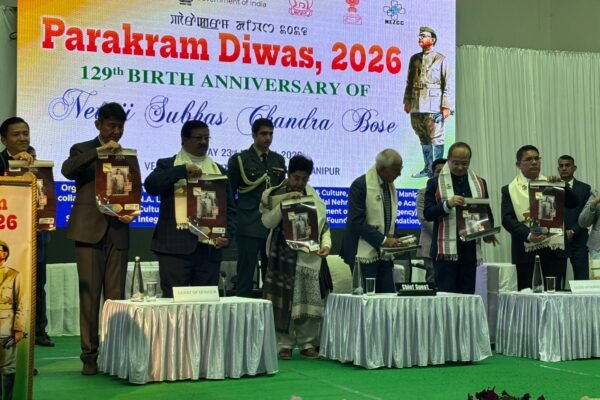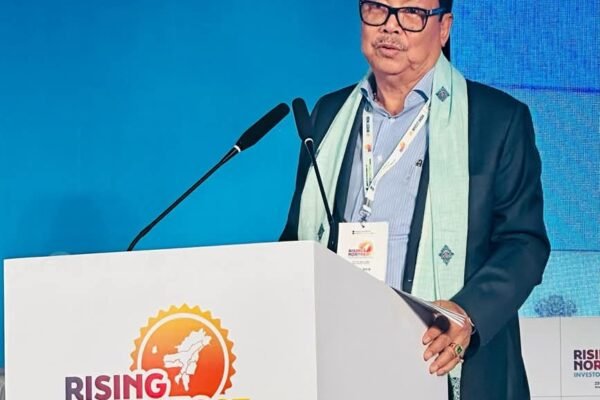Agartala, November 05, 2025: Tripura’s Agriculture and Farmers’ Welfare Minister Ratan Lal Nath on Tuesday highlighted the importance of agricultural self-reliance as a cornerstone for the state’s overall progress.
Speaking at the unveiling ceremony of foundation stone of the Tulasikhar Primary Rural Market under the Tulasikhar Agricultural Subdivision in presence of Forest minister Animesh Debbarma, Nath said, “Achieving self-reliance in agriculture is synonymous with steering Tripura towards comprehensive self-sufficiency.”
The minister announced that the state government has approved ₹160 crore for the construction of 60 rural markets—one for each of Tripura’s 60 assembly constituencies. The initiative aims to strengthen agricultural infrastructure and improve market access for farmers across the state.
Highlighting agriculture as India’s foundational sector, Nath reiterated Prime Minister Narendra Modi’s vision of transforming the country into the “granary of the world” through a modern, creative, and resilient agricultural system. “Food is the most basic human need, followed by water, shelter, clothing, education, and electricity. Agriculture forms the backbone of our nation,” he said.
Nath stressed that nearly 70% of Tripura’s population is directly or indirectly dependent on agriculture. “Without agricultural self-reliance, the state’s broader self-reliance remains incomplete,” he noted, adding that the Agriculture and Farmers’ Welfare Department is working tirelessly to boost farmers’ income and ensure food grain self-sufficiency.
The minister emphasized that agricultural infrastructure development is essential for achieving self-reliance. He said the government is undertaking multiple initiatives to upgrade market infrastructure across the state. Specific proposals have been drawn up to develop primary rural markets and regulated agricultural markets under targeted schemes.
This strategic push aligns with Tripura’s broader goal of empowering its agrarian communities and fostering sustainable economic growth through grassroots development.









